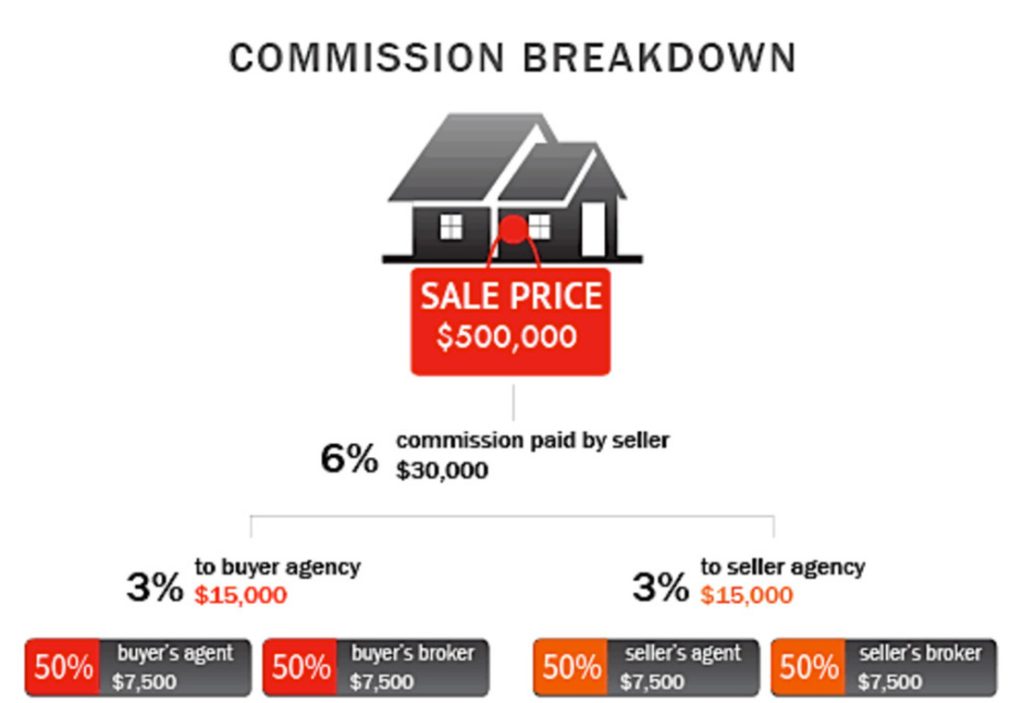Not long ago, a Missouri federal court found the National Association of Realtors (NAR) guilty of complicity in the artificial increase of commissions on home sales. NAR is not alone in the scandal, as they were indicted alongside the largest real estate brokers in the US.

It doesn’t end there because earlier this month, the NAR and Keller William Realty have been indicted in South Carolina for similar sharp practices.
How Realtors in Missouri and South Carolina Bit Some Dust
The unethical practice of inflating home sale commissions is not strange to the NAR and top realty brokerage firms. In fact, the South Carolina lawsuit is calling into question home sale transactions from as far back as 2019.

In the Missouri lawsuit, the Federal Court ruled that the culpable parties paid $1.8 billion in damages.
Realtors Are Inflating Agent Commission
The two cases that have been unearthed in Missouri and South Carolina must have put Realtors, property brokerage firms, and home sellers in other states on their toes.

The investigations that prompted the lawsuits started when it was discovered that the prices of homes were getting inexplicably high. Investigations would later reveal that the high commission on home sales is culpable.
ALSO READ: Why Do People Think the Supreme Court’s New Ethics Code Is Wrong?
The Juicy Side of Buyer Brokerage
The real estate lawsuits in Missouri and South Carolina may reveal a prevalent practice in all states of the US. Interestingly, a similar issue is at the center of the two lawsuits.

Real estate broker commission is the bone of contention. In the United States, the commission on each home sale often lingers between five and six percent of the home sale value and gets shared equally by the selling and buying broker.
Hide the Fee!
Here’s where the NAR comes in. According to the Association’s policy, multiple listing services (MLSs) can conceal the percentage of the total sale package that goes to the commission.

So, this policy serves as a hedge behind which MLSs hide, thus concealing the actual cost of the home and commission. Eventually, this policy makes home sales less competitive.
Buying a House that Suits the Broker
During the Missouri case, the plaintiff suggested that buying brokers around the country are likely to exploit this policy. They don’t necessarily have to increase the commission on a property.

Instead, a buying broker only needs to convince the homebuyer to go for the property with the highest commission. It’s not a problem for the broker, as the buyer foots the bill; however, the practice kicks against the antitrust law.
POLL — Should Donald J. Trump Be Allowed to Run for Office?
Some Home Prices Are Conditional
Interestingly, some home sellers issue conditional offers that permit buyers to adjust the terms of compensation for the brokers involved. However, some buying brokers ensure the homebuyer does not see such offers to make sure the agent commission is not subject to downward review.

Some brokers even suggest to the homebuyer that their services are free, which is far from the truth.
Agents Are Smiling to the Bank
To give some perspective to plaintiff attorney Ketchmark’s claim, let’s assume you are buying a house for a total package of $400,000.

With the NAR policy permitting nondisclosure of the agent commission, the buyer would be ignorant of whether they are paying 5% ($20,000) or 6% (24,000) as agent fee. Knowledge of this information would have given the buyer better bargaining power on every house they prospect.
We’ve Done No Wrong!
So far, the real estate companies and brokerage firms indicted in the lawsuits are resolute in claiming innocence. That doesn’t come as a surprise because the inflation of home sale commissions has been the trend for years, so much that it has become a norm.

However, two realtor groups have already negotiated a claim settlement without acknowledging wrongdoing.
ALSO READ: Three Arrested by Feds in High-End Brothel Network Scandal
Pay for Damages or Appeal
Before the South Carolina trial, Anywhere Real Estate (HOUS) agreed to pay $83 million, while Re/Max (RMAX) will pay $55 million.

However, companies like HomeServices of America (a realty concern of Berkshire Hathaway) and Keller Williams Realty are bent on appealing the Missouri court judgment. This decision is to the Realtors’ advantage, as such appeals may drag on for many years.
Real Estate Regulators Also Indicted
The higher-ups of the NAR also insist on appealing the two verdicts. As far as the Association is concerned, the policy under dispute is for the good of all parties involved in any real estate transaction across the US.

The judgment is an unsettling of the status quo, which will equally upset the annual sales projections of these Realtors. So, it’s not surprising that the big players are appealing.
The Battle Rages On
Attorney Ketchmark also agrees that the policies and practices in question have governed real estate transactions in the US for years.

However, he feels something equivalent to culture in an industry and found to be unethical shouldn’t be excused. Instead of backing down, Ketchmark is working on filing lawsuits against other culpable real estate giants.
You Might Also Like:
- How Demon Slayer: Infinity Castle Became a Blockbuster & the Biggest Anime Ever
- Global Citizen Festival 2025: Shakira & Cardi B Lead NYC’s Fusion of Music and Activism
- Tim Burton & Monica Bellucci Split After Two Years Together: A Gothic Romance Ends
- Colin Farrell & Margot Robbie Reveal Regret Over Cut Dance Scene in A Big Bold Beautiful Journey
- Afrobeats Dominates UK Charts: Rema, Ayra Starr & More Lead a Global Takeover

